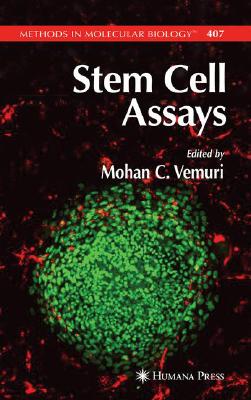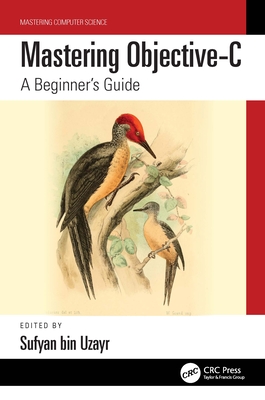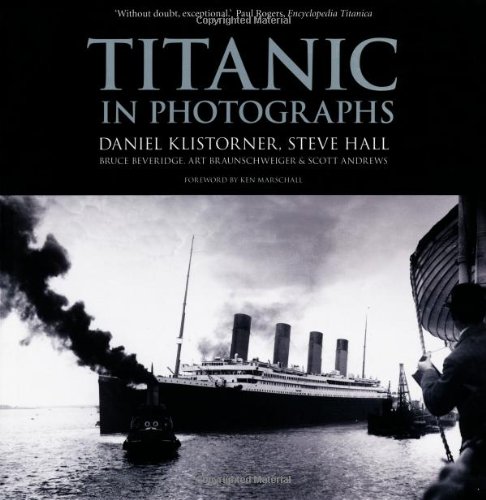图书简介
Stem cells and regenerative medicine is a fast emerging field with rapid strides of progress and focus on human health. Successful utilization of stem cells in regenerative medicine depends on two important features. One, stem cells can grow and divide indefinitely, and two, stem cells can differentiate into specialized cell types that make up tissues such as pancreas, heart, liver, blood, and others. Utilizing the property of differentiation, stem cells can be engineered to produce cell types to replace wornout cells and to regenerate damaged tissue. The scope for improving healthcare using stem cell therapies is thrilling, but considerable technical challenges and methodological constraints need to be addressed. There is a great need for isolation and propagation of ?transplant-ready? or ?clinical-grade? stem cells and screening methods, well before they are used in therapies. Recent scientific advances have contributed enormously to the development of new methods pertaining to both embryonic and adult stem cell isolation, characterization, expansion in undifferentiated state, customized differentiation, efficient stem cell transduction for gene therapy, quick monitoring of rejection, through polymerase chain reaction approaches following transplantation, and more. The scientific progress that makes stem cell biology so exciting also threatens to suffocate researchers with an avalanche of information. Keeping with the tradition of Humana Press to bring these developments to the forefront in a timely manner, the book Stem Cell Assays aims to present scientific advances in stem cell methods for a wider use by novice and expert scientists, through the Methods in Molecular Biology series.
Preface.- Contributors.- Derivation of Human Embryonic Stem Cells in Xeno-Free ConditionsMohan C. Vemuri, Tim Schimmel, Pere Colls, Santiago Munne, and Jacques Cohen.- Feeder-Layer Free Culture System for Human Embryonic Stem CellsMichal Amit.- Digital Imaging of Stem Cells by Electron MicroscopyA. Henry Sathananthan and Stefania A. Nottola.- A Controlled-Cooling Protocol for Cryopreservation of Human and Non-Human Primate Embryonic Stem CellsCarol B. Ware and Szczepan W. Baran.- Cell Surface Markers in Human Embryonic Stem CellsRaj R. Rao, Alison Venable Johnson, and Steven L. Stice.- Generation of a Monoclonal Antibody Library Against Human Embryonic Stem CellsMicha Drukker, Christina Muscat, and Irving L. Weissman.- Analytical Methods for Cancer Stem CellsVinagolu K. Rajasekhar.- Micro RNA Profiling: An Easy and Rapid Method to Screen and Characterize Stem Cell PopulationsUma Lakshmipathy, Brad Love, Christopher Adams, Bhaskar Thyagarajan, and Jonathan D. Chesnut.- Gene Transfer Via Nucleofection Into Adult and Embryonic Stem CellsUma Lakshmipathy, Shannon Buckley, and Catherine Verfaillie.- RNAi Knockdown of Transcription Factor Pu.1 in the Differentiation of Mouse Embryonic Stem CellsGang-Ming Zou, Meredith A. Thompson, and Mervin C. Yoder.- StemBase: A Resource for the Analysis of Stem Cell Gene Expression DataChristopher J. Porter, Gareth A. Palidwor, Reatha Sandie, Paul M. Krzyzanowski, Enrique M. Muro, Carolina Perez-Iratxeta, and Miguel A. Andrade-Navarro.- Isolation of Stem Cells from Human Umbilical Cord BloodNishanth P. Reddy, Mohan C. Vemuri, and Reddanna Pallu.- Ex Vivo Expansion of Hematopoietic Stem Cells from Human Cord Blood in Serum-Free ConditionsChao-Ling Yao and Shiaw-Min Hwang.- Hematopoietic Colony-Forming Cell AssaysCarla Pereira, Emer Clarke, and Jackie Damen.- Assays for Alloreactive Responses by PCRPatrick Stordeur.- Immune Properties of Mesenchymal Stem CellsPanagiota A. Sotiropoulou and Michael Papamichail.- Clinical Grade Expansion of Human Bone Marrow Mesenchymal Stem CellsPanagiota A. Sotiropoulou, Sonia A. Perez, and Michael Papamichail.- Adenoviral Transduction of Mesenchymal Stem CellsPablo Bosch and Steven L. Stice.- Directed Differentiation of Human Embryonic Stem Cells to Dendritic CellsMaxim A. Vodyanik and Igor I. Slukvin.- Insulin-Producing Cells from Embryonic Stem Cells Experimental ConsiderationsEnrique Roche, Roberto Ensenat-Waser, Nestor Vicente-Salar, Alfredo Santana, Martin Zenke, and Juan Antonio Reig.- Efficient Generation of Dopamine Neurons from Human Embryonic Stem CellsChang-Hwan Park and Sang-Hun Lee.- Isolation of Oligodendroglial Cells from Cultured Neural Stem/ProgenitorsFrank Zeigler and Stephen G. Hall.- Differentiation of Human Embryonic Stem Cells Toward the Chondrogenic LineageWei Seong Toh, Zheng Yang, Boon Chin Heng, and Tong Cao.- Cartilage Tissue Engineering: Directed Differentiation of Embryonic Stem Cells in Three-Dimensional Hydrogel CultureNathaniel S. Hwang, Shyni Varghese, and Jennifer Elisseeff.
Trade Policy 买家须知
- 关于产品:
- ● 正版保障:本网站隶属于中国国际图书贸易集团公司,确保所有图书都是100%正版。
- ● 环保纸张:进口图书大多使用的都是环保轻型张,颜色偏黄,重量比较轻。
- ● 毛边版:即书翻页的地方,故意做成了参差不齐的样子,一般为精装版,更具收藏价值。
关于退换货:- 由于预订产品的特殊性,采购订单正式发订后,买方不得无故取消全部或部分产品的订购。
- 由于进口图书的特殊性,发生以下情况的,请直接拒收货物,由快递返回:
- ● 外包装破损/发错货/少发货/图书外观破损/图书配件不全(例如:光盘等)
并请在工作日通过电话400-008-1110联系我们。
- 签收后,如发生以下情况,请在签收后的5个工作日内联系客服办理退换货:
- ● 缺页/错页/错印/脱线
关于发货时间:- 一般情况下:
- ●【现货】 下单后48小时内由北京(库房)发出快递。
- ●【预订】【预售】下单后国外发货,到货时间预计5-8周左右,店铺默认中通快递,如需顺丰快递邮费到付。
- ● 需要开具发票的客户,发货时间可能在上述基础上再延后1-2个工作日(紧急发票需求,请联系010-68433105/3213);
- ● 如遇其他特殊原因,对发货时间有影响的,我们会第一时间在网站公告,敬请留意。
关于到货时间:- 由于进口图书入境入库后,都是委托第三方快递发货,所以我们只能保证在规定时间内发出,但无法为您保证确切的到货时间。
- ● 主要城市一般2-4天
- ● 偏远地区一般4-7天
关于接听咨询电话的时间:- 010-68433105/3213正常接听咨询电话的时间为:周一至周五上午8:30~下午5:00,周六、日及法定节假日休息,将无法接听来电,敬请谅解。
- 其它时间您也可以通过邮件联系我们:customer@readgo.cn,工作日会优先处理。
关于快递:- ● 已付款订单:主要由中通、宅急送负责派送,订单进度查询请拨打010-68433105/3213。
本书暂无推荐
本书暂无推荐













